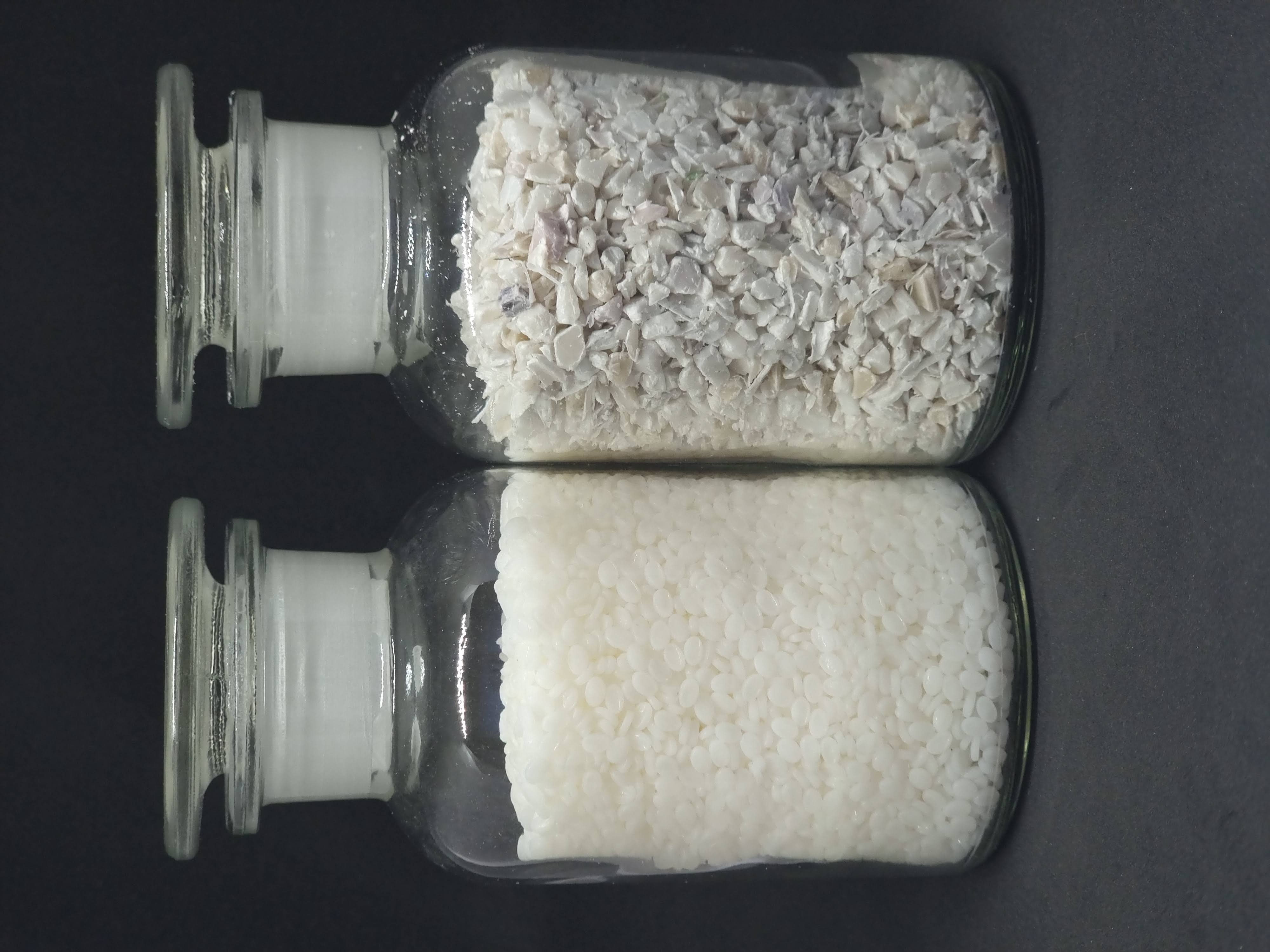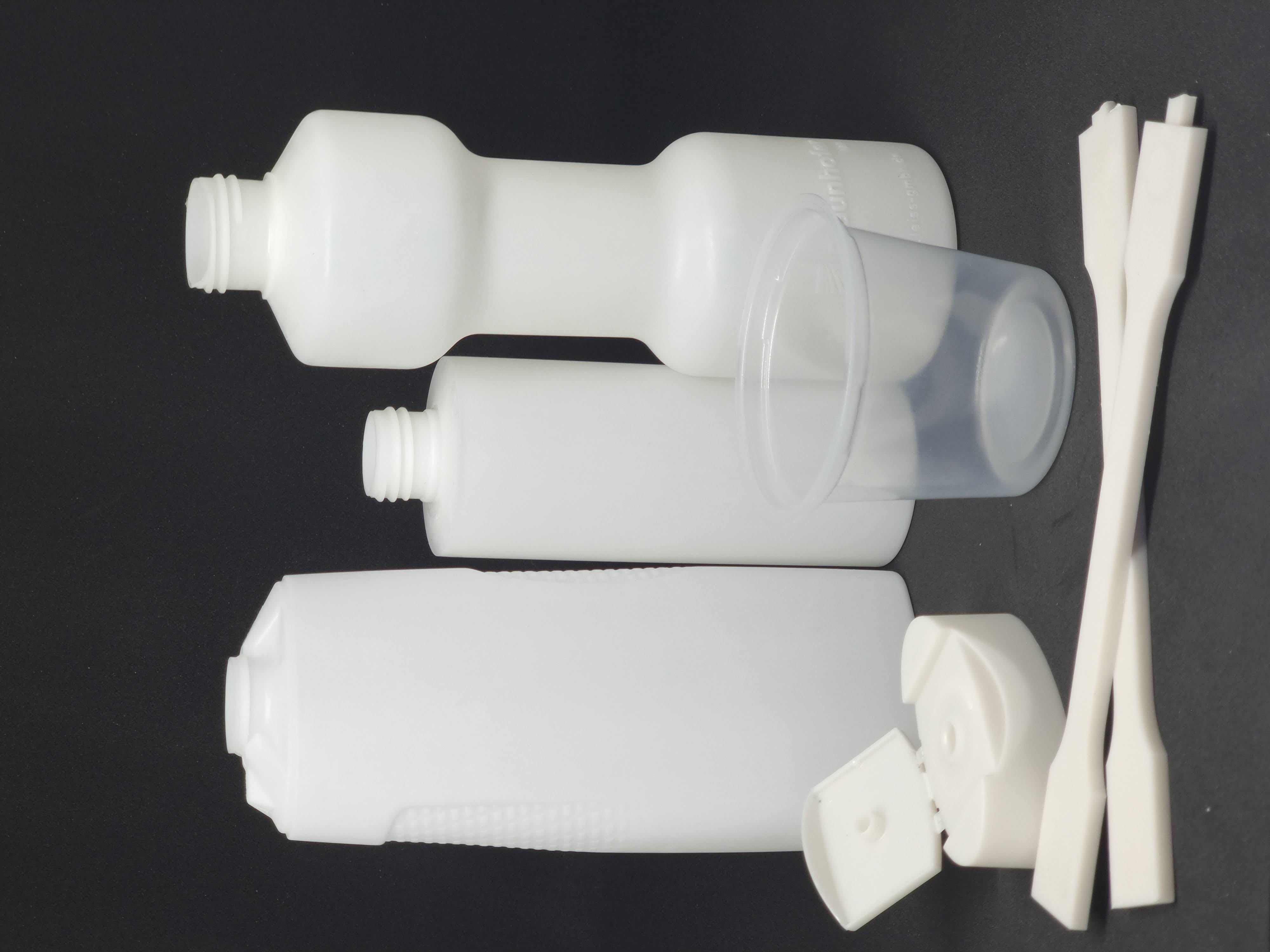Plastics based on polybutylene succinate (PBS) offer great potential for sustainable packaging. Their ecological added value increases if they can also be recycled efficiently. The Fraunhofer Institute for Microstructure of Materials and Systems IMWS has now presented solutions for this: The separation of PBS from waste streams, mechanical recycling and further processing are possible and offer a valuable key to establishing a circular plastics economy.


Even if shopping bags are increasingly made of paper, disposable cutlery is banned and the environmental impact of microplastics is to be reduced everywhere: The global production of plastics continues to increase. After all, plastic offers valuable material properties that are indispensable for many products. In order to reconcile these properties with the desired sustainability, the industry is pursuing various approaches that are ideally combined to achieve a circular economy: Plastic can be produced on the basis of renewable raw materials or using CO2 as a carbon source, and it can also be made from recycled materials.
Polybutylene succinate (PBS) already plays an important role in the biodegradable plastics market. The bioplastic can be obtained from materials containing cellulose and lignocellulose, such as wood and grass or waste materials from the paper industry and biogas plants. PBS polymers have good processing properties and are therefore suitable for a wide range of applications. “PBS offers very good opportunities for food packaging or cosmetic products, for example. However, to make it even more sustainable and meet the stricter political requirements for packaging in the EU, PBS must also be recyclable. We have proven this together with partners,” says Dr. Patrick Hirsch from the Fraunhofer IMWS, who presented the initial results of the RUBIO project at the ‘7th Forum Plastic Recyclates’ in Darmstadt.
The first step in the project was to develop solutions for sorting PBS plastics. The result: using near-infrared spectroscopy, PBS materials can be identified and separated in a waste stream, even if they are contaminated with other materials such as PET or have paper labels. In the second step, the PBS fraction sorted out of the plastic waste was ground into granulate in industrial granulators. The research work from RUBIO proved that there is no risk of thermal anomalies such as melting or clogging of the screens.
The granulate was then compounded using a twin-screw extruder. During compounding, various raw materials and additives are mixed together, usually in an extruder, which ensures that the starting components (such as PBS) and additives (such as fillers, colorants or plasticizers) are evenly distributed and combined. During this mixing process, the materials are heated, causing them to melt and form a homogeneous mass. This is crucial in order to achieve the desired mechanical, thermal and chemical properties of the end product.
“The suitability of recycled PBS for this important process in plastics processing is a crucial prerequisite for the widest possible use,” says Hirsch. In the RUBIO project, he and his team investigated the mechanical properties and processing characteristics in order to ensure the quality of the recycled material. Multiple compounding revealed degradation effects, which can, however, be offset by appropriate stabilizers. The Fraunhofer team also carried out life cycle analyses. “This showed that recycled PBS can make a significant contribution to reducing the global warming potential of plastic products. This underlines the importance of this material, for whose increased use we have now made decisive progress in several important areas,” concludes Hirsch.
(April 23, 2025)